Birkbeck University of London Creative and Critical Writing Ma
1 year full-time or 2 years part-time
We will be making some changes to the way our programmes will be delivered in 2021-22 to ensure we continue to respond to the ongoing Covid-19 pandemic. All programmes will be delivered in-person on campus with some specific sessions within each programme being delivered online in a pre-recorded format. Where necessary, changes will also be made to assessment formats.
The academic study of children's literature has developed over the past 30 years, and is now a recognised multidisciplinary field of enquiry. The MA Children's Literature will enable you to explore the relationship between reader, writer, text and context, and consider the critical perspectives that underpin those interactions.
Why study MA Children's Literature at Goldsmiths?
- This postgraduate course will deepen your familiarity with a range of children's literature, from 'classic' works, to contemporary texts. Through this, you'll develop a detailed knowledge of the issues and debates in the field, analysing children's literature using theories from education, cultural studies, literary theory, psychology, sociology, history and philosophy.
- We foster a critical stance towards children's literature, academic reading, and ideological underpinning. All of our staff are actively involved in research in the fields of education and children's literature. Award-winning author Michael Rosen is part of the leading team on this programme.
- The Masters in Children's Literature aims to incorporate and respond to your unique background as an individual. we encourage you to use this to address the challenging issues of representation and diversity in children's literature. You may come from a publishing background or work in education or children's media. If you have a passion for children's literature then this is the course for you.
- Students on this programme's creative writing pathway will be able to work with published creative writing lecturers, including the novelists Ardashir Vakil and Sara Grant, to create short stories, novels, and poems for children and young adults. Creative writing alumni have had their work published, including a recent book by Dashe Roberts 'The Bigwoof Conspiracy (2020); a creative writing handbook co-authored by Harry Oulton 'The Writing Deck: 53 Prompts for Putting Pen to Paper (2019); and Anna Dempsey won the Costa Short Story Award (2019).
You will also benefit from a broad range of extracurricular events with key figures in the field hosted by the Centre for Language, Culture and Learning. Past speakers and events have included: Professor Jack Zipes, 'Speaking the Truth with Fairy Tales' (2018); Michael Rosen in conversation with Malorie Blackman (2019); Michael Rosen in conversation with Philip Pullman (2021). The Centre has organised conferences related to children's literature: Michael Rosen's Reading Revolution Conference (2017); New Ways to Promote Reading for Pleasure (2019); Queering Children's Literature (2020); and Michael Rosen in conversation with Philip Pullman (2021).
We offer an MA Children's Literature: Children's Book Illustration for those who want to illustrate children's books.
Contact the department
If you have specific questions about the degree, contact Dr Vicky Macleroy.
What you'll study
Common Compulsory Modules
Whether you choose the Issues and Debates, or the Creative Writing pathway, you will take the following two compulsory modules.
| Common modules | Module title | Credits |
|---|---|---|
Children's Literature: Theory and Criticism Children's Literature: Theory and Criticism30 credits The Module examines: i. The definitions, historical determinants, discursive limits and functions of children's literature (i.e. 'what is children's literature?') ii. Definitions and discourse around the notion of childhood (i.e. 'who is the reader of children's literature?') iii. The nature of the reading and reception process and how this is mediated by social and functional determinants within nurture, education and notions of the 'classic' (i.e. how do children - or children and adults together – read children's literature?). | 30 credits | |
Children's Literature, Culture and Diversity Children's Literature, Culture and Diversity30 credits This course emphasises the pleasures of literature and aims to make students knowledgeable and committed readers of literature for children and young people. In the course we aim to address a range of issues in relation to culture and identity through literature for children. We take a wide definition which includes picture books and graphic novels, media and dramatic texts. We consider historical perspectives and explore children's literature for today, as a distinct form, which is a product of both literary traditions and current ideological contexts. Sessions will include consideration of the nature of literature for children, poetry and oral texts, picture books, media texts, graphic novels and reader response theory, and an exploration of literature about the refugee experience. | 30 credits |
Issues and Debates pathway
Students on this pathway will study the following compulsory modules.
| Compulsory modules (I&D pathway) | Module title | Credits |
|---|---|---|
Researching Children's Literature Researching Children's Literature30 credits This module provides an introduction to research into children's literature. It aims to develop a critical understanding of the main methodological debates and knowledge of the key research methods central to the study of issues within children's literature. It offers opportunities to examine some of the ideas which have been influential in literary theory and some of the approaches used to research literary cultures. It begins with an overview of key methodologies that can be applied to children's literature studies, and then look specifically at two examples: feminist approaches, critical race theory. It looks in depth at specific research methods for the study of children's literature such as a focus on genres, themes or authors, reader response and critical pedagogy. Empirical and classroom-based research, close textual analysis, and multimodal approaches are also explored. The module is designed to assist in study for the MA more generally, and support the work for the dissertation. | 30 credits | |
Dissertation Dissertation60 credits | 60 credits |
Option modules
You will also take a 30-credit option module offered by the Department of Educational Studies, including the following.
| Option modules (I&D) | Module title | Credits |
|---|---|---|
Children's Literature in Action Children's Literature in Action30 credits This Module will enable students to carry out a piece of 'action research', investigating a learning environment, in which an intervention based on literature is made by the student. At the onset of this module students will set up participant-observer, 'action research' projects involving themselves and child or young adult readers. Through seminar discussion, students will learn how to adapt and change the project; how to report on 'work in progress', how to analyse process within the progression of the project, how to use learning theory, talk analysis, reader-response theory. As the project progresses the students will learn how to analyse and evaluate the data they are collecting in terms of use of language, social interactions around literary texts, psychological indications given by how children speak and behave in relation to literary texts, the importance of the role of intertextuality, social class, race and gender in how or why the children are responding in particular ways. By the end of their projects, the students will be able to produce lucid accounts of this original research, evaluating both their 'intervention' in the learning environment and the children's progress through the project, showing how the account was informed by theory and by the seminar discussions so that the project may a) be reproduced by others attempting similar projects; b) inform the debates around literacy, oracy and children's literature; c) affect and improve the students' own practice in whatever learning environment they work. | 30 credits |
Creative writing pathway
Students on this pathway will take the following modules, as well as completing a final project portfolio worth 60 credits.
| Compulsory modules (Creative writing pathway) | Module title | Credits |
|---|---|---|
Workshop in Creative and Life Writing Workshop in Creative and Life Writing30 credits This is a two-and-a-half-hour workshop which runs throughout the year. In the first term, students are encouraged to experiment with a variety of genres in creative and life writing, and in the second term to develop their individual interests. Students are asked to consider works by significant writers in relation to their own writing practice. Presentations of their work to each other, with an account of their aims and approach, forms one important element. The students meet a range of practices, concerns and, techniques. The workshop is also the place where the issues raised in the Contemporary Contexts module are further debated in relation to the students' own practice. | 30 credits | |
Writing for Children and Young Adults Writing for Children and Young Adults30 credits This module introduces the practice of writing fiction for children (Middle Grade, 9-12 years) and young adults. It offers you the opportunity to develop creative work in progress, give and receive feedback in weekly workshops and experiment with new forms, readerships and voices. It also encourages you to discuss the work of established writers for younger readers in relation to your own writing practice and consider the theoretical, social and cultural contexts of contemporary writing for children and young adults. The workshop will aim to allow you to develop your own interests and preferences. Critical analysis, close reading, workshop exercises and critical evaluation methods will be used to enable you to develop and demonstrate an ability to produce writing in different forms, from a number of different perspectives and to develop informed critical understanding in this field You will be required to read widely and to follow current debates and research. You will explore a wide variety of fiction for readers to better understand the joys and challenges of writing for young readers. You will be encouraged to experiment with writing for different age ranges and genres to help you hone your individual writing interests, preferences and styles | 30 credits |
Individual Modules
Some of these modules are also available to be taken as part of a Continuing Professional Development (CPD) programme.
Assessment
Book studies, assignments, project (optional), dissertation, creative writing (optional).
Download the programme specification . If you would like an earlier version of the programme specification, please contact the Quality Office.
Please note that due to staff research commitments not all of these modules may be available every year.
For 2021-22 and 2020–21, we have made some changes to how the teaching and assessment of certain programmes are delivered. To check what changes affect this programme, please visit the programme changes page.
What our students say
Helen Jones
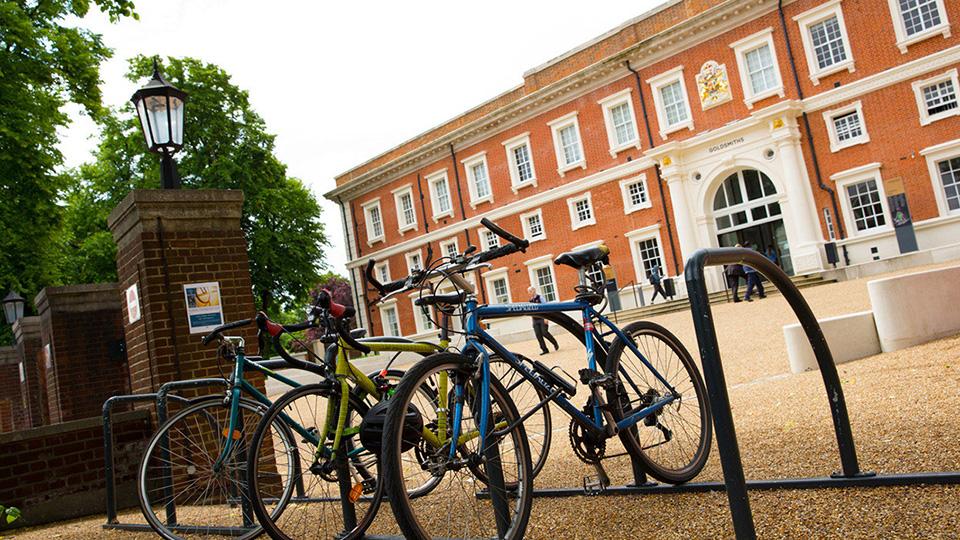
Helen is researching her PhD thesis into children's comics-making at Goldsmiths University, having previously studied for a foundation diploma at Camberwell College of Art.
Helen is researching her PhD thesis into children's comics-making at Goldsmiths University, having previously studied a foundation diploma at Camberwell College of Art, a BA (Hons) in Communication at Cardiff University, a PGCE in Primary Education at Middlesex University and an MA in Children's Literature at Goldsmiths University. Helen is a lecturer in primary education at UCL, Institute of Education. Prior to this, she was a teacher in primary schools in London for twelve years, during which time she had a range of roles in both leadership and the classroom. Helen currently runs an after-school comic club for children in a local primary school. She has three young children who are all enthusiastic readers and makers of comics and graphic novels.
Helen has been awarded a Goldsmiths, Department of Educational Studies scholarship for her PhD studies. She has published articles and presented at conferences on her specialist area:
Jones, H. (2021). Developing a comic library to support children reading for pleasure. English 4-11, Summer 2021
Jones, H. (2021).Caticorns and Derp Warz: Exploring children's comic making and literacy worlds in an after school comic club. Presented at: Transitions 9.
Jones, H. (2020).Caticorns and Derp Warz: Exploring children's literacy worlds through the production of comics. Studies in Comics, 11 (1), 59-93.
Jones, H. (2019).It is awesome and you get to swap fun, funny and fantasy!' How a comic lending library impacted on the reading habits of Y3 pupils . Presented at: UKLA 55th International Conference.
Jones, H. (2019). New Ways to Promote Reading for Pleasure with Michael Rosen. Panel discussion at: New Ways to Promote Reading for Pleasure with Michael Rosen.
Harry Oulton

Harry completed his MA in Children's Literature at Goldsmith's in 2019 and has written three middle-grade novels and a book of prompts for reluctant writers of all ages.
Harry completed his MA in Children's Literature at Goldsmith's in 2019 and has written three middle-grade novels and a book of prompts for reluctant writers of all ages. More details can be accessed on his website http://www.harryoulton.co.uk/books/.
Harry started a PhD at Goldsmiths in Children's Literature in 2020 with the working title of "Arrowfall - the methodology of Adaptation in YA Historical Fiction". The Paston Lettersare a series of over 1000 letters written between members of the same family in the 15th century. They are readily accessible, and Harry is using them as his principal source material in the creation ofArrowfall, a contemporaneous Young Adult Historical novel. This is the same creative process followed in 1883 by Robert Louis Stevenson when he wrote the YA novelThe Black Arrow, and Helen Castor in 2004 when she wroteBlood and Roses,a biography of the Paston family.Arrowfall will interact with all three texts, creating a pyramid of adaptation and informing the choices he makes during the writing process. He will also be drawing on outlaw narratives, from Walter Scott'sIvanhoe up to the 2017 Netflix seriesCasa de Papel.Historical Fiction is itself the product of an adaptive contradiction; by necessity, it involves the insertion of fiction into a truth, and this uneasy juxtaposition is best examined and accessed using an adaptation studies methodology. As HF is often used pedagogically, he is working within both the creative writing and the education faculties of Goldsmiths. The pedagogic aspect must consider fidelity, which will ensure he, in turn, addresses the fundamental question at the heart of adaptation; should an adaptation bring the source text to the reader, or should it take the reader to the text?
Richard Charlesworth
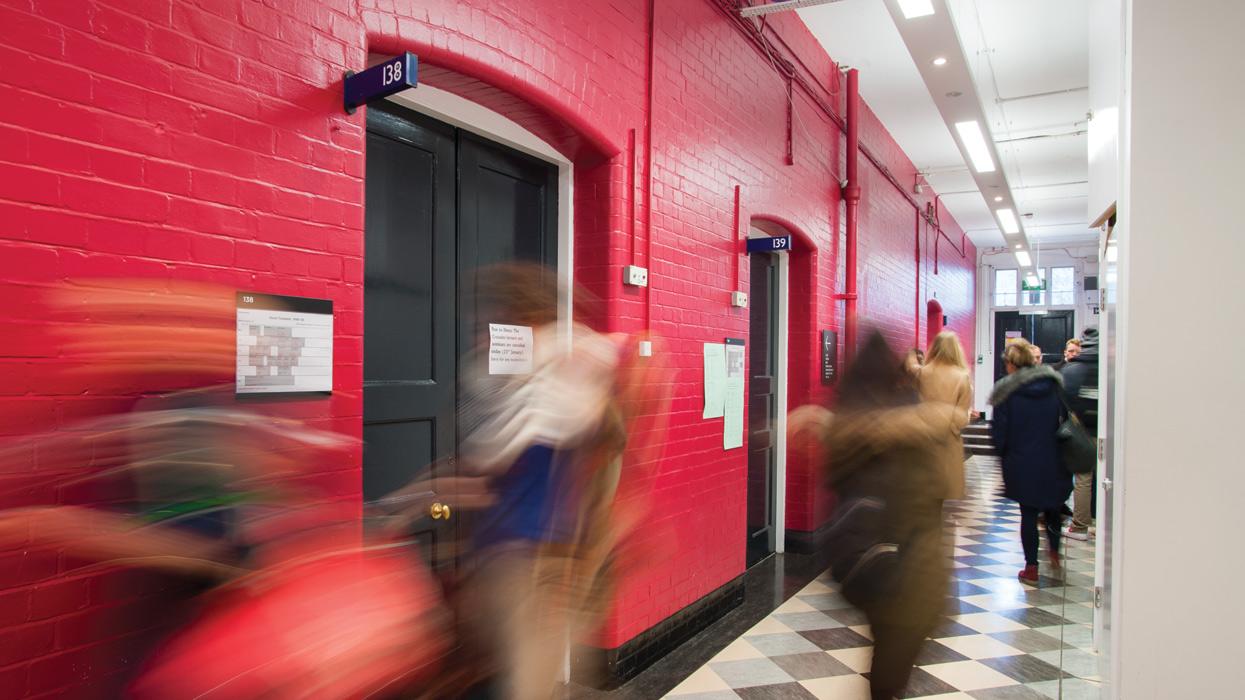
Richard has judged for the Empathy Lab the past two years and will do so for the 2022 collection as well.
Richard has judged for the Empathy Lab the past two years and will do so for the 2022 collection as well. He has also judged for his local independent bookseller's award which focuses on illustrated chapter fiction in 2020.
He has worked closely with the UKLA, running workshops at several conferences before joining their international conference in 2018. He is a regional representative for London and on the Awards Committee, which involves shadowing the text selection process, supporting teacher judges and reviewing applications for the awards.
Following Goldsmith's Reading for Pleasure conference in conversation with Michael, he has spoken at a few webinars, appeared on several podcasts, and helped create resources for parents centred around Book Talk (created alongside Macmillan during Lockdown 1 last year) – this culminated in a webinar.
This has led to him recently taking on some picturebook consultancy work with the Open University. The project (currently being undertaken) focuses on the theme of hope and overcoming adversity. Framework and resources to support practitioners in classrooms/libraries alongside some academic work should be released around July.
He is frequently found talking books on Twitter and have run a few regular events which include #OURfPBookBlether and #LetsTalkGraphicNovels.
Entry requirements
You should have (or expect to be awarded) an undergraduate degree of at least second class standard in a related field.
You might also be considered for some programmes if you aren't a graduate or your degree is in an unrelated field, but have relevant experience and can show that you have the ability to work at postgraduate level.
Additional Entry Requirement for the Creative Writing Pathway
To apply to study on the Creative Writing Pathway you should follow the usual application process, submitting a substantial piece or pieces of original creative writing, up to a maximum of 3,000 words, with your application. This work does not have to be in the form of writing for children/young adults. It will be considered by the Module Leader of the Workshop in Creative and Life Writing.
Your submission should include one item from the following list: 1 short story; 7-10 poems; 1 or 2 extracts from a novel; 1 or 2 extracts from non-fiction writing, for example, memoir.
International qualifications
We accept a wide range of international qualifications. Find out more about the qualifications we accept from around the world.
If English isn't your first language, you will need an IELTS score (or equivalent English language qualification) of 7.0 with a 7.0 in writing and no element lower than 6.5 to study this programme. If you need assistance with your English language, we offer a range of courses that can help prepare you for postgraduate-level study.
Fees, funding & scholarships
Annual tuition fees
These are the fees for students starting their programme in the 2021/2022 academic year.
- Home - full-time: £8990
- Home - part-time: £4495
- International - full-time: £15360
If your fees are not listed here, please check our postgraduate fees guidance or contact the Fees Office, who can also advise you about how to pay your fees.
It's not currently possible for international students to study part-time if you require a Student Visa, however this is currently being reviewed and will be confirmed in the new year. Please read our visa guidance in the interim for more information. If you think you might be eligible to study part-time while being on another visa type, please contact our Admissions Team for more information.
If you are looking to pay your fees please see our guide to making a payment.
Additional costs
In addition to your tuition fees, you'll be responsible for any additional costs associated with your course, such as buying stationery and paying for photocopying. You can find out more about what you need to budget for on our study costs page.
There may also be specific additional costs associated with your programme. This can include things like paying for field trips or specialist materials for your assignments. Please check the programme specification for more information.
Funding opportunities
Find out more about postgraduate fees and explore funding opportunities. If you're applying for funding, you may be subject to an application deadline.
Funding may be available from schools' Continuing Professional Development (CPD) budgets.
How to apply
You apply directly to Goldsmiths using our online application system.
Before submitting your application you'll need to have:
- Details ofyour education history, including the dates of all exams/assessments
- Theemail address of your referee who we can request a reference from, or alternatively an electronic copy of your academic reference
- Apersonal statement – this can either be uploaded as a Word Document or PDF, or completed online
Please see our guidance on writing a postgraduate statement
- If available, an electronic copy ofyour educational transcript (this is particularly important if you have studied outside of the UK, but isn't mandatory)
You'll be able to save your progress at any point and return to your application by logging in using your username/email and password.
When to apply
We accept applications from October for students wanting to start the following September.
We encourage you to complete your application as early as possible, even if you haven't finished your current programme of study. It's very common to be offered a place that is conditional on you achieving a particular qualification.
Late applications will only be considered if there are spaces available.
If you're applying for funding, you may be subject to an earlier application deadline.
Selection process
Admission to many programmes is by interview, unless you live outside the UK. Occasionally, we'll make candidates an offer of a place on the basis of their application and qualifications alone.
Find out more about applying.
Careers
Careers
Graduates will be well placed to specialise in children's literature in a range of careers:
- Teaching
- Publishing
- Children's media
- Writing texts for children
- Librarianship
- Academic study
- Youth and community work
Skills
You will acquire a wide-ranging understanding of the field of children's literature and the social, political cultural processes that surround it. You will also develop your critical thinking, communication and research skills.
Find out more about employability at Goldsmiths.
Staff
Michael Rosen
Award-winning author Michael Rosen, who has written more than 200 books and was the fifth British Children's Laureate, is one of the leading lights on the programme.
"It's been very exciting developing an MA in Children's Literature at Goldsmiths, especially as there's a huge appetite for it in recent years. We have potentially a huge number of people who want to study this fascinating subject.
There are so many interesting elements to Children's Literature that perhaps aren't obvious; psychological and anthropological elements for example. Children's Literature is essentially a human practice, it's part of how we initiate our children into life, but also how we begin to shape how they think about and question what they are ".
Staff who teach on the programme include:
- Dr Vicky Macleroy
- Dr Julia Hope
- Dr Laura Teague
- Alison Griffiths
- Dr Sarah Pearce
- Vicki Ryf
- Ardashir Vakil
- Sara Grant
Find out more about staff in the Departments of Educational Studies and English and Creative Writing.
Similar programmes

MA Creative & Life Writing
Have you got a story to tell? Or poems that you want to shape into a collection? This Masters degree will help you develop your creative writing practice. You'll experiment with a wide variety of forms to help you discover your preferred mode of writing.
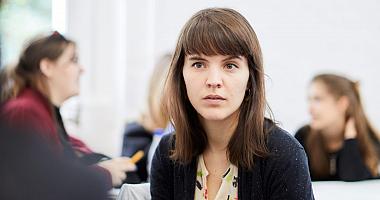
MA Applied Anthropology & Community & Youth Work
Professionally validated by the National Youth Agency, this programme brings together community development and youth work practice with the research methods and theoretical preoccupations of anthropology.
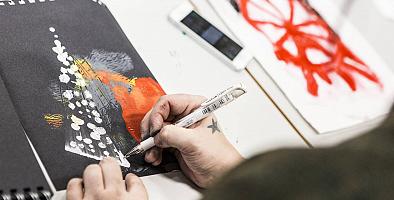
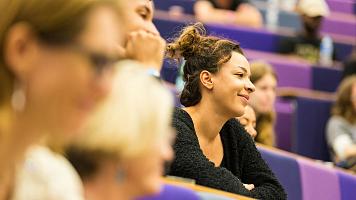
MA Creative Writing & Education
You might be a teacher who writes; a writer who works in education; a poet, a novelist or a short story writer. Whatever your background, this course will teach you more about the connections between creative writing and education.
Birkbeck University of London Creative and Critical Writing Ma
Source: https://www.gold.ac.uk/pg/ma-childrens-literature/
0 Response to "Birkbeck University of London Creative and Critical Writing Ma"
Post a Comment